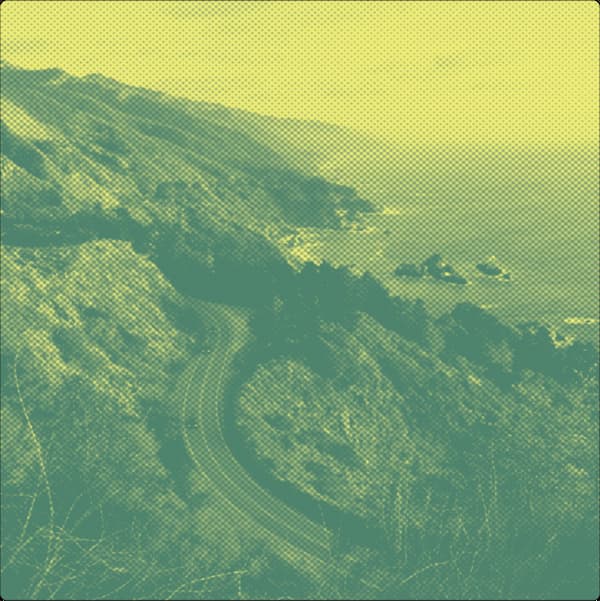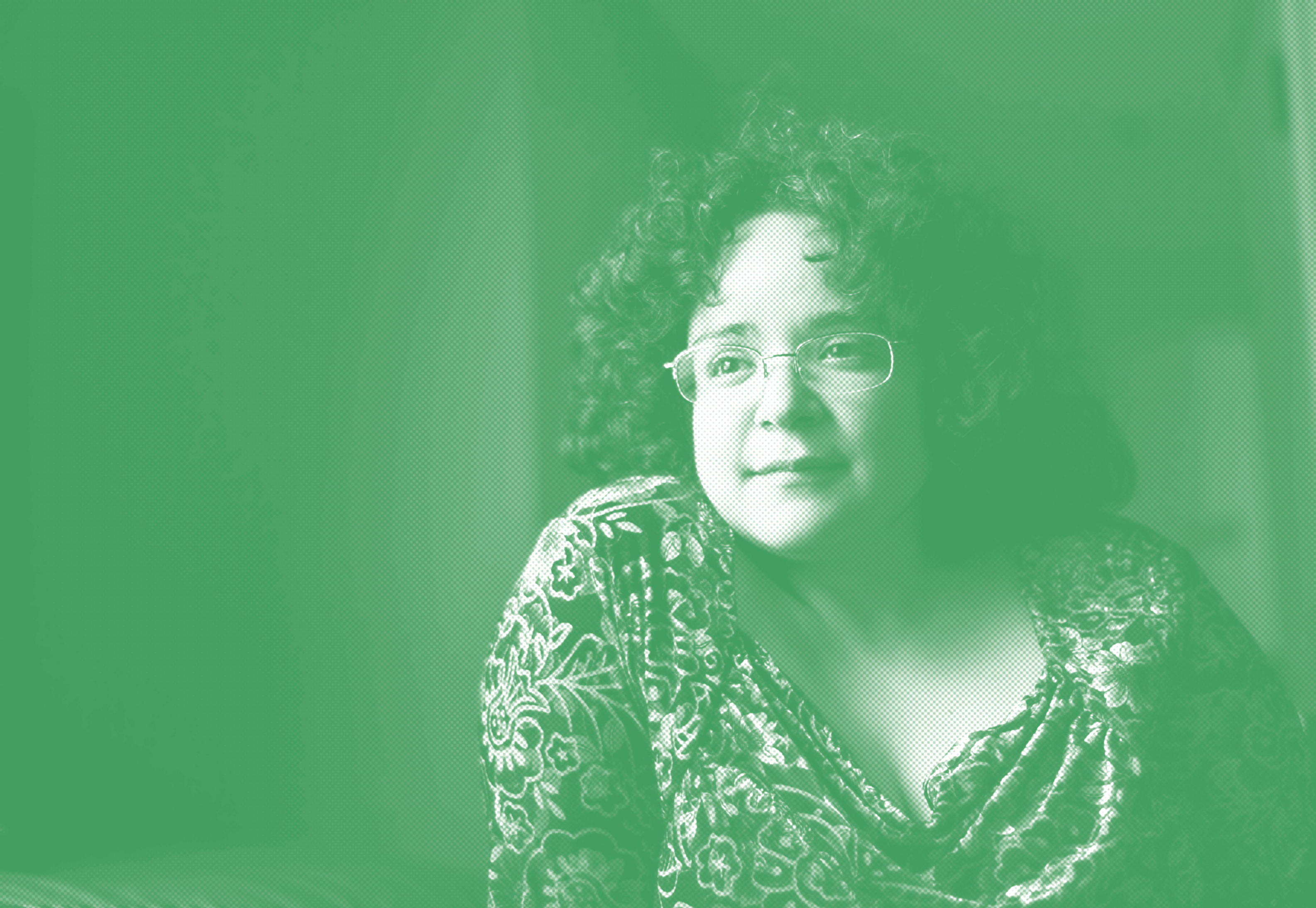By Ken Herman
Gabriela Lena Frank: Composing in Community
Transforming the sonic landscape through grassroots cultivation.
Most music aficionados still imagine the typical composer working alone in their tiny garret, barely in touch with the outside world. Even a more likely contemporary scenario suggests a tenured professor at a college or university finding time for composition between teaching classes and attending faculty meetings. But Gabriela Lena Frank has created an entirely different arena for composers, especially those who are developing their craft. In 2017 in rural Boonville, located in California’s Mendocino County, she founded the Gabriela Lena Frank Creative Academy of Music, a retreat center where composers gather to work on their composition skills in community.
A leading American composer, Gabriela Lena Frank currently serves as composer-in-residence with The Philadelphia Orchestra under the baton of Yannick Nézet-Séguin. Born in Berkeley, California, in September 1972 to a mother of mixed Peruvian/Chinese ancestry and a father of Lithuanian/Jewish descent, Frank regularly explores her multicultural heritage through her compositions and has always placed identity at the center of her music. Winner of a Latin GRAMMY Award, she has also been nominated for GRAMMYS as both composer and pianist.
Her first opera, El último sueño de Frida y Diego, written with librettist Nilo Cruz, received its acclaimed world première by the San Diego Opera in October, 2022, and the production was presented in 2023 by San Francisco Opera, a co-commissioner of this grand opera depicting the tumultuous lives of the celebrated Mexican artists Diego Rivera and Frida Kahlo. Los Angeles Opera opens its production of El último sueño on November 18, 2023, and the opera will be presented by New York’s Metropolitan Opera in its 2025-2026 season.
In a review of the San Francisco Opera production of Frank’s opera, San Francisco Chronicle music critic Joshua Kosman praised Frank’s rich instrumental and vibrant vocal score concluding, “Frida y Diego is among the most alluring and beautifully crafted operas to be commissioned by the company in a long time. May there be many more.”
In a recent Zoom interview, Frank explained the impetus of creating her Academy of Music. “Starting a center like the Academy was never a goal of mine. Well into my 40s, I was completely enmeshed in my own career as a composer.”
But a startling and frightening event happened to her in 2016 as she and her husband were driving from northern California to a week-long teaching residency in New Mexico.
“We had stopped at a truck stop in a red state—an open-carry state—and I went into the convenience store to pick up some snacks. From behind I was accosted by a large white man who pushed me down on the floor and stood over me with a look of satisfaction on his face. He showed me his gun, and I was terrified.”
Frank, a short, brown-skinned Latina, immediately understood his motivation. Because there were other people in the store, however, she was able to quickly escape before the situation escalated.
“I think that incident -- which took me several years before I could even say the words hate crime -- woke up an imperative to do more than I was doing. For a long time, I was primarily focused on creating space for my own voice as a disabled woman of color.
After that incident, I knew that no matter how hard I had worked, I needed to help others more, and I was in the place where I could do that. Moreover, I had the responsibility to do so.
So, I decided to create a space that was the antithesis of what that hateful incident was about, a place where people from a broad range of political stripes and demographics and aesthetics can work together without conflict, producing culture-makers and storytellers likewise diverse.”
Founding the Academy was an act of faith, of course, so Gabriela and her husband Jeremy opened their spacious Boonville home and invited the first class of emerging composers. Their goal was to create an experience that would give the composers a strong professional and artistic boost, but she also wanted these composers to think of the arts as indispensable to communities beyond the concert hall. She was convinced that a small, personal academy could be more nimble and potent than large conservatories and university music departments.
Gabriela and Jeremy underwrote all of the expenses of the Academy’s inaugural year.
“I put together the funds from a couple of symphony commissions,” she explained, “but after the first year we were able to get grant funding. We are currently working from a multi-year grant from the Mellon Foundation.”
To her great satisfaction, the Academy’s first year proved a resounding success, engaging some 19 budding composers and 12 experienced faculty performers, including the Third Angle New Music Ensemble, soprano Tony Arnold, violinist Johnny Gandelsman, and cellist Joshua Roman.
Although most of the composers who attend the Academy tend to be younger, there are no age restrictions, and the musical styles the composers pursue span the gamut.
“I want the composers to be at least 21, at the end of their undergraduate studies, but there is no age limit. I think our oldest budding composer was 63. And I did make an exception for a very promising 18-year-old student one year.
“Some of the composers use only graphic notation; others compose electro-acoustic music; some write in various jazz styles and hip-hop. Others focus on non-western musical traditions such as Iranian or Carnatic Indian music. Some are involved in performance art, while others want to write traditional concert music or even opera.”
Unlike Arnold Schoenberg, the early 20th-century Austrian composer who founded the Second Viennese School, Frank does not teach her method of composition to the Academy students.
I would consider it a total failure if the students sounded like me. My task is to get into their voice and their musical universe—I celebrate the diversity of my composers.”
At various times during the year, typically 8 to 12 students come to Boonville for a week, but they have been working on their compositions for the previous six months in online lessons with Gabriela and other faculty advisors, as well as in group sessions with fellow students.
“After their full week here, they return home to finish their projects and bring back their finished compositions for final rehearsals on Zoom. Each piece is then recorded and given an online premiere via the Academy’s YouTube channel.”
Taking into account both the financial cost and the ecological downside of cross-country air flights, Frank has designed the program to make the best possible use of the students’ time at the Academy, keeping the extensive preparation stages as well as the polishing of compositions online.
Frank stressed that receiving reaction and responses from their peers is an important facet of participating in the Academy on site in Boonville.
“I would make the analogy of a fiction writers’ workshop, where authors share their writings with other authors,” Frank explained. “The composers’ feedback from peers—everybody hears everybody else’s music—is as important as one-on-one instruction. We maintain a non-competitive atmosphere at the Academy, and this in itself is frequently a novel experience for these composers.”
The Academy is not just eager to help composers produce their art. Of equal importance is having their works performed before serious audiences. When Frank served as Composer-in-residence for the 2021 SummerFest in La Jolla, CA, she curated an entire program of works by Academy composers, including Timothy Peterson’s “Shoreline” song cycle and a string quartet by Nicolas Benavides.
Since 2018, the Del Sol String Quartet has regularly commissioned works by Academy composers, and in early 2022 the San Francisco Chamber Orchestra premiered commissioned works by Academy graduates Carlos Simon and Jessica Hunt. The Fresno Philharmonic is co-commissioning a work by two Japanese-American sisters Erika and Htomi Oba, also graduates of the Academy.
The Academy has entered into a multi-year relationship with the Annapolis Symphony, starting with commissions for Academy composers Michael-Thomas Fournai and Nicky Sohn.
“I am currently in discussion with two more California-based orchestras to commission Academy composers. One thing that is unusual about our co-commissioning with orchestras is that all of the composers get a reading of their orchestral work in progress. I’m very proud of this,” Frank added.
“I am particularly concerned about the financial stability of these younger composers, and whenever I am negotiating a commission contract for one of our Academy participants, I negotiate fiercely for them."
I asked Frank to reflect on how her own composing has been affected by the Academy.
“Well, it has certainly changed how I teach composition. But more importantly, I have come to the realization that everything I do, everything I write should be an inspiration to these younger composers. I think I have to be brighter and shinier, to encourage and motivate them.”
Leading the Academy and cultivating the next generation of composers has transformed the typical introversion that characterizes most composers into a more embracing worldview that grounds Frank’s optimism about the music’s future.
“Before the Academy, I was quite focused on my own artistic work. As a disabled woman of color, my hands were sufficiently full making space for my own stories to be heard.
“It has been a transformative experience to have the trust of my younger siblings coming up in the field, many of whom have become my colleagues. I’m part of a movement, after all, that goes beyond the music industry, and my mentees are supposed to go farther than I ever could. I— and by extension my work—have become more brave for the gifts of the Academy.”
__________
Gabriela Lena Frank headshot and academy photos courtesy of Gabriela Lena Frank Creative Academy of Music.
LA Opera presents Gabriela Lena-Frank’s El último sueño de Frida y Diego (The Last Dream of Frida and Diego) on Saturday, November 18, 2023 as part of the California Festival. Information and tickets here.
Ken Herman is a professional organist and pianist. He has been a music and arts writer for the San Diego Union, the Los Angeles Times San Diego Edition, and is the music critic for San Diego Story, an online source covering the performing arts in San Diego County.


